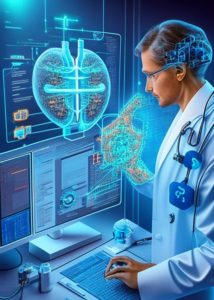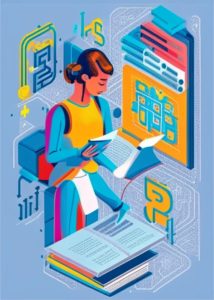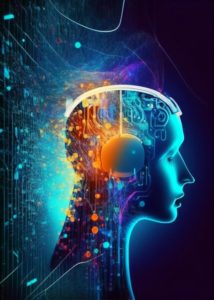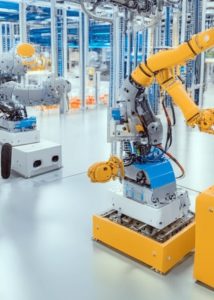What is Artificial Intelligence (AI)?
Artificial Intelligence (AI) is the science and engineering of making intelligent machines, especially intelligent computer programs. It is a branch of computer science that deals with the creation of intelligent agents, which are systems that can reason, learn, and act autonomously.
One of the most important goals of AI research is to create machines that can think and reason like humans. This goal has been difficult to achieve, but there has been significant progress in recent years. For example, AI systems can now beat humans at chess, Go, and other games. They can also diagnose diseases, translate languages, and write creative content.
Benefits
Artificial Intelligence (AI) offers a wide range of benefits across various industries and applications. Here are some key advantages and benefits of AI:
- AI can help us to solve complex problems that are beyond the capabilities of humans.
- AI can automate tasks, freeing up human time and resources.
- AI can improve the efficiency and accuracy of decision-making.
- AI can provide personalized services that are tailored to each individual’s needs.
Different types
Artificial Intelligence (AI) can be categorized into several different types based on its capabilities and functionalities.
Different types of AI that are currently being developed:
- Machine learning : This is a type of AI that allows machines to learn without being explicitly programmed. Machine learning algorithms are trained on data, and they can then use that data to make predictions or decisions.
- Deep Learning : Deep learning is a specialized branch of machine learning that uses artificial neural networks to model and solve complex problems. It has been particularly successful in tasks like image and speech recognition.
- Natural language processing : This is a type of AI that allows machines to understand and process human language. Natural language processing systems can be used to translate languages, generate text, and answer questions.
- Computer vision : This is a type of AI that allows machines to see and understand the world around them. Computer vision systems can be used to identify objects, track movement, and recognize faces.
- Robotics : This is a field of engineering that deals with the design, construction, and operation of robots. Robots are machines that can perform tasks automatically, and they are often used in manufacturing, healthcare, and other industries.
Usage
Artificial Intelligence (AI) has a wide range of applications across various industries and domains. Here are some examples of how AI is used in different fields:
Healthcare : AI is used for medical image analysis, diagnosis prediction, drug discovery, and personalized treatment recommendations.

- Medical Image Analysis: AI can analyze medical images (e.g., X-rays, MRIs, CT scans) to detect diseases and abnormalities.
- Drug Discovery: AI accelerates drug discovery by analyzing chemical structures and predicting potential drug candidates.
- Personalized Medicine: AI analyzes patient data to tailor treatment plans and medication dosages for individual patients.
Finance : In the financial sector, AI is employed for fraud detection, algorithmic trading, credit risk assessment, and customer service chatbots.

- Fraud Detection: AI algorithms can identify fraudulent transactions and suspicious activities.
- Algorithmic Trading: AI-driven trading algorithms make rapid, data-driven investment decisions.
- Risk Assessment: AI assesses credit risk and provides risk management insights for financial institutions.
Education : AI is being used to develop personalised learning experiences, automated grading & assessment and virtual classrooms, Data Analytics etc.

- Personalised Learning: AI analyzes students’ learning patterns and abilities to create personalized learning paths and adapt the difficulty of content.
- Automated Grading and Assessment: AI automates the grading of assignments, quizzes, and tests, reducing the burden on educators and providing faster feedback to students. It can also analyze assessment data to identify areas where students may need additional support.
- Virtual Classrooms : AI-powered virtual classrooms enable remote learning with features like video conferencing, screen sharing, and interactive whiteboards.
- Data Analytics: AI analyzes large sets of educational data to identify trends, assess student performance, and inform curriculum improvements. Educators can make data-driven decisions to enhance teaching methods.
Entertainment : AI powers content recommendation systems on streaming platforms and is used for creating AI-generated art and music.

- Content Creation: AI algorithms can create visual art, music, and literature. For example, AI-generated paintings and music compositions are gaining recognition. AI tools analyze data to help screenwriters and content creators generate ideas, improve dialogues, and predict audience preferences.
Content Recommendation : AI-powered recommendation engines analyze user behavior and preferences to suggest movies, TV shows, music, and books, increasing user engagement and satisfaction.
Personalised Marketing : AI helps entertainment companies personalize marketing campaigns, targeting audiences with tailored content and advertisements.
Manufacturing : Industrial robots with AI capabilities enhance manufacturing efficiency and quality control.

- Predictive Maintenance: AI predicts equipment failures and optimizes maintenance schedules to reduce downtime.
- Quality Control: AI inspects products for defects during manufacturing.
- Supply Chain Optimization: AI optimizes logistics and supply chain operations.
Autonomous Vehicles : A self-driving car is a vehicle that can navigate roads and avoid obstacles without human input. AI is used to power the sensors and software that allow self-driving cars to see, think, and act like humans.

- Self-Driving Cars: AI enables vehicles to perceive their environment, make driving decisions, and navigate autonomously.
- Drones: AI-equipped drones are used for surveillance, agriculture, and delivery services.
Challenges and Considerations
While AI offers tremendous potential, it also raises ethical, societal, and technical challenges.
- Bias and Fairness: AI algorithms can perpetuate biases present in training data, leading to unfair outcomes. Ensuring fairness and addressing bias is a critical concern.
- Privacy: AI systems can process vast amounts of personal data. Protecting user privacy and data security is essential.
- Regulation and Ethics: There is a need for ethical guidelines and regulations to govern AI use, especially in sensitive areas like healthcare and finance.
- Transparency: Many AI models, particularly deep learning models, are considered “black boxes” because their decision-making processes are difficult to interpret. Ensuring transparency and accountability is challenging.
- Continual Learning: AI systems must be designed to learn and adapt over time, which poses challenges in terms of updates and maintenance.
In conclusion, Artificial Intelligence is a dynamic and evolving field that has the potential to revolutionize various aspects of our lives. It offers both opportunities and challenges, and its impact on society will continue to grow as AI technologies advance.
